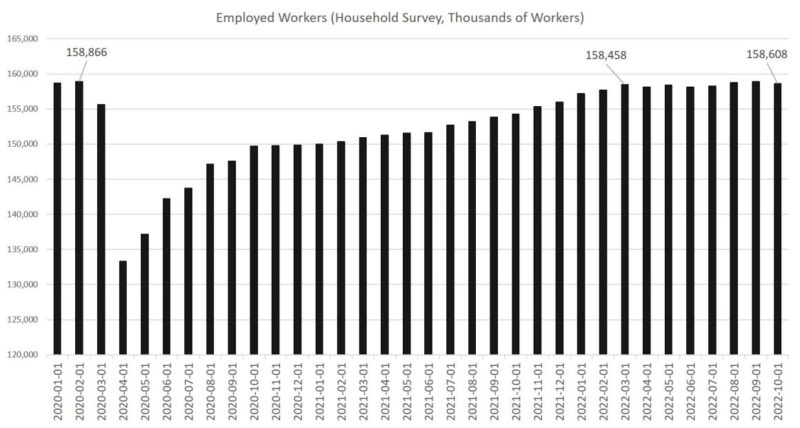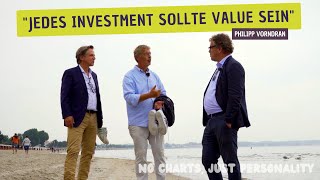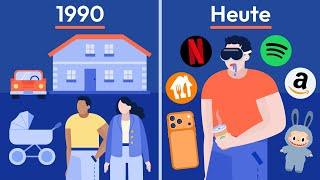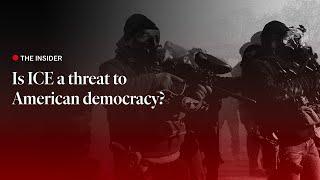Tag Archive: newsletter
What Will Drive Markets Next? | 3:00 on Markets & Money
(11/7/22) Markets rebounded on Friday, and are set to open higher this morning, ahead of The Big Elections tomorrow. The 20-DMA is now confirmed-support, and markets today will retest resistance at the 50-DMA. Markets are trapped between these two, narrow boundaries. A breakout in one direction of the other will likely dictate the next leg of the markets' move. The election outcomes and next week's CPI report, for better or worse, are likely to be...
Read More »
Read More »
DAX mit neuen 2-MONATSHOCH | Blick auf die Woche | KW 45
► Jetzt Termin vereinbaren und vom Experten beraten lassen!
https://mariolueddemann.com/trading-beratung/
► In wenigen Jahren zu deine Millionen
Willst du wissen, wie das auch für dich geht? Dann melde dich hier zum kostenfreien Beratungsgespräch an: https://deinmillionendepot.com/termin-buchen/
- - -
► Für Trader: sicher dir hier kostenfrei mein E-Book, damit du dein kleines Konto groß tradest: https://mariolueddemann.com/aktuelles/#ebooks
►...
Read More »
Read More »
SMART BOURSE – L’invité de la mi-journée : Thomas Costerg (Pictet WM)
Lundi 7 novembre 2022, SMART BOURSE reçoit Thomas Costerg (Économiste senior US, Pictet WM)
Read More »
Read More »
It’s Midterm Election Eve
(11/7/22) It's Mid-term Election Eve (fixing the clocks for CST). Markets' response to hawkish Fed statements by testing resistance at 50-DMA today. All bets are off until after the midterm elections; re-testing of markets lows are coming; why businesses' tapping of credit lines are not a good omen. What shook the markets: Headline data vs underlying details; household surveys vs government reports (lagging indicators). Economic weaknesses will...
Read More »
Read More »
Risk Appetites Survive China Keeping Zero Covid Policy
Overview: Chinese officials denied plans to end the zero-Covid policy
and after a brief wobble, risk assets have traded better. Asia Pacific equities
rallied, led by Hong Kong and mainland stocks that trade in Hong Kong. Europe’s
Stoxx 600 opened lower but recovered and is around 0.5% higher after the 1.8%
gain before the weekend. US futures are firm. Benchmark 10-year yields are mostly
2-4 bp softer in Europe and the US. The dollar is mixed. The...
Read More »
Read More »
Reif für die Insel
Was muss man vorkehren, was beachten?
Mehr zum Thema erfahren? Besuchen Sie uns auf https://www.fintool.ch
?? Auf diesen Kanälen könnt ihr uns erreichen:
–––––––––––––––––––––––––––––––––––––––––––––
►Unsere Website: https://www.fintool.ch
►Unser FACEBOOK: https://www.facebook.com/fintool
►Unser LinkedIn: https://www.linkedin.com/company/fint...
►Unser INSTAGRAM: https://www.instagram.com/fintool.ch/...
Read More »
Read More »
Profi-Trader aus Japan packt aus: Live in Tokyo! (mit Rüdiger Born)
Ich bin auf der Suche nach den besten Strategien und den neuesten Trends für euch. Dafür bin ich für euch nach Japan gereist. Das Ende der Deflation bringt auch viele Anlagemöglichkeiten mit sich. Live aus Tokyo spreche ich mit Kapitalmarktexperte Rüdiger Born (www.born-traders.com). Er ist seit vielen Jahren in Tokyo vor Ort, kennt Land und Leute und hat seit Jahren mehrere erfolgreiche Strategien im Markt aktiv.
Und hier noch die versprochenen...
Read More »
Read More »
Swiss inflation stable in October
Switzerland’s consumer price index (CPI) remained stable in October 2022 compared with the previous month, reported Switzerland’s Federal Statistical Office (FSO) this week.
Read More »
Read More »
The Number of Employed Workers Fell in October and Price Inflation Continues to Outpace Wages
In another sign of weakness for the job market, the total number of employed persons in the United States fell, month over month, in October. That's the third time in the last seven months this total has fallen, dropping to approximately 158 million.
Read More »
Read More »
Drei Bücher, die vom Markt genommen wurden | Vorgestellt durch Max Otte
Max Otte stellt in diesem Video drei Bücher vor, die in Deutschland vom Markt genommen wurden und im Buchhandel nicht mehr erhältlich sind. Warum will man nicht, dass diese Bücher in Deutschland gelesen werden? Natürlich geht es um die Inhalte! Max Otte stellt zunächst das Buch "Die einzige Weltmacht" von Zbigniew Brzezinski vor, das bereits vor 25 Jahren erschienen ist und in dessen Inhaltsverzeichnis die Ukraine 20mal vorkommt. Des...
Read More »
Read More »
Are Robots and AI Really Going to Displace All Workers? Probably Not
Among the components of the World Economic Forum’s Great Reset are a drastically reduced population and the replacement of human labor with robots and artificial intelligence (AI). The question immediately comes to mind: can robots and AI really make all the stuff for the elites after they have gotten rid of the people?
Read More »
Read More »
Switzerland should do more on tax avoidance, says EU parliamentarian
Switzerland has made progress in reforming tax rates for multinational companies but still has work to do when it comes to turning a blind eye to tax avoidance.
Read More »
Read More »
Ist FTX nun auch bankrott??
Viele Gerüchte gibt es derzeit um Sam Bankman und dessen Fond Alameda. FTT Crash? Bankrott? Celsius 2.0? Was die wirklichen Fakten derzeit sind und wie ich das sehe, erfährst du in diesem Video.
Hat dir das Video gefallen? Gib mir nen DAUMEN HOCH ? bzw. TEILE dieses Video um gemeinsam AT, DE und CH cryptofit zu machen!
#JulianHosp #Bitcoin #Blockchain
? Kein Video mehr verpassen? ABONNIERE meinen Kanal:...
Read More »
Read More »
BullionStar Perspectives – Ronald Stöferle – Global Macro and Gold: A European Perspective
Filmed in October 2022
In this not to be missed episode of BullionStar Perspectives, Ronald Stoeferle of Incrementum AG talks to Ronan Manly about the current precarious state of financial markets.
The interview covers everything from the macro interactions of interest rates, inflation, gold and economic growth, to the feeling on the ground in Europe, and from how Incrementum manages its portfolios, to why German speaking populations have an...
Read More »
Read More »
NOTENBANKEN außer Kontrolle? Wirtschaftscrash droht!
Droht uns eine harte Landung, eine Rezession und damit ein Wirtschaftscrash? Haben die Notenbanken nun letztendlich die Kontrolle verloren? Können sie das Feuer der Inflation noch löschen? Innerhalb einer Woche haben die US-Notenbank und die Bank of England die Zinsen abermals erhöht. Die erhoffte Kehrtwende ist ausgeblieben und der Ausblick ist negativ. Wieso? Das und noch mehr erfahrt ihr in dieser Folge "finanzielle Intelligenz" aus...
Read More »
Read More »
Philipp Vorndran: “Ohne Vola keine Cola” – No Charts, Just Personality Episode 6
Im sechsten und letzten Teil des Interviews mit Philipp Vorndran spricht der Kapitalmarktstratege mit Peter Ehlers und Malte Dreher, Herausgeber von DAS INVESTMENT, nicht nur über die Anlagestrategie von Flossbach von Storch. Er verrät auch, wie er die besten Talente nach Köln holt.
Rendite und Performance seien nicht alles, sagt Philipp Vorndran, den Kapitalmarktstrategen der Kölner Fonds-Boutique Flossbach von Storch (FvS) im Gespräch mit Peter...
Read More »
Read More »
Trading Wochenanalyse für KW 45/2022 mit Marcus Klebe – DAX – DOW – EUR/USD – Gold #Chartanalyse
HIER geht´s zum kostenlosen EAthon Event:
https://www.digistore24.com/redir/464094/Trading360
In dieser Analyse blickt Marcus Klebe auf die vergangene Handelswoche im DAX, Dow, EUR/USD und Gold und bespricht wichtige charttechnische Bereiche und mögliche Bewegungen für die kommenden Handelstage.
#BigPicture #Chartanalyse #MarcusKlebe
HIER geht es zur Webinarserie: TRADEN MIT KLEINEM KONTO IN 2022...
Read More »
Read More »
Anleihen sind besser als Aktien oder warum T I N A tot ist ️
In den ersten 60 Minuten vom Video lernst Du unter anderem:
• Warum solltest Du einen Teil Deines Geldes in Anleihen anlegen?
• Warum will Deine Bank nicht, dass Du Dein Geld in Anleihen anlegst?
• Wie investierst Du kostengünstig in Anleihen?
• Wie kannst Du jetzt Dein Geld mit Anleihen vor Inflation und Krisen schützen?
• Welche Bonds bieten in der aktuellen Zeit über 10 % Rendite?
Bonus: Wir besprechen drei Fallstudien mit konkreten Anleihen!...
Read More »
Read More »
Can the Dollar Sell Off Much More Before the CPI?
The apparent hawkishness of Fed Chair Powell's comments at the press conference following the FOMC's fourth consecutive rate hike extended the dollar's recovery, which had begun in late
October.
Read More »
Read More »





























































